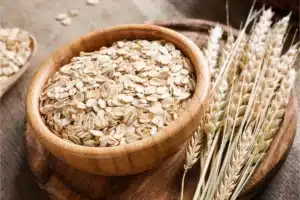Natural Approaches to Detox from Alcohol Addiction

Recent numbers show that over 600,000 people in England struggle with alcohol dependence. To make matters worse, 82 per cent of these people have yet to seek treatment. This is despite evidence that addiction treatment has a success rate of 60 per cent and that every £1 spent on treatment can result in £3 of benefit. Public health offices have also noticed the staggering increase in alcohol-related deaths, which have gone up by 82 per cent in the last two decades.
In this situation, it’s important for people struggling with alcohol addiction, as well as their loved ones, to know how they can support the treatment process. Too often, a lack of support and preparation can render initial efforts ineffective. That being said, knowing how to support your body during an alcohol detox can make a major difference in recovery-related outcomes. Here’s what to know about natural detox from alcohol addiction, including the importance of hydration, a typical detox timeline, and foods that support the body’s detox process.
What is An Alcohol Detox?
Before you can begin the addiction treatment process, you’ll need to clear your body of alcohol, also known as a detox. It’s possible to undergo alcohol detox in both inpatient and outpatient treatment settings. During the process, you’ll be reducing your alcohol intake, and your physician will prescribe medication to help you cope with symptoms.
Of course, keep in mind that quitting suddenly without proper medical supervision or preparation is very dangerous. Alcohol is perhaps the most dangerous substance to withdraw from without proper support and medical intervention. This is primarily due to the possibility of experiencing severe withdrawal symptoms, known as delirium tremens.
Why Detoxification Is Important for Addiction Recovery
The primary goal of an alcohol detox is to help you become substance-free and relieve withdrawal symptoms. On the path to recovering from alcohol addiction, going through detox is perhaps the most challenging aspect. When you’re struggling with alcohol dependence, the detox process can have significant impacts on your physical and mental health. Nevertheless, once you cross that bridge, you’ll immediately notice the difference.
From better quality sleep and higher energy levels to improved relationships with loved ones, there are various reasons detoxification is important for addiction recovery. But perhaps the most important reason is to help you overcome withdrawal symptoms, which can increase the risk of relapse.
Typical Alcohol Detox Timeline
You can expect the initial detox to take about a week or so, but some people may experience withdrawal symptoms for a longer time. The timeline usually goes as follows:

- Initial withdrawal symptoms begin about 8 hours after your last drink
- Symptoms peak after one to three days
- Symptoms become less intense after 5 to 7 days.
- Psychological side effects of anxiety will continue for one week after starting a detox.
The Importance of Hydration for Natural Detox
While your body can eliminate traces of alcohol naturally, there are certain things you can do to improve this process. Despite being a natural process, alcohol detoxification requires that you stay hydrated. A major reason is that alcohol is a dehydrating substance, and withdrawal symptoms like diarrhoea and vomiting can contribute to further dehydration. And because these symptoms can worsen due to dehydration, detoxing can become even more difficult.
Secondly, staying hydrated supports the body’s in-built detox process, which involves functionalisation, conjugation, and elimination from the body. Not to mention, you need to drink enough water to support organs like your kidneys, which are involved in the removal of waste products from your body. It also maintains a consistent blood volume, which supports the healthy transport of nutrients within the body.
How Much Water You Should Drink During Alcohol Detox
How much water you should drink varies depending on factors like metabolism, body size, and physical activity. However, you should try drinking between two to three litres per day. If your daily routine includes exercise, your body will need extra water, so remember to keep yourself hydrated during and after exercise sessions.
Additionally, experts recommend consuming plenty of nutrient-dense fluids like stews, soups, and fresh juices. Since addictive substances like alcohol can put immense strain on your digestive tract, it’s important to give it a break before going back to solid foods. Besides providing comfort and relief during the detox process, soups take less of a toll on organ systems. Other steps for a better personal care routine with services like hair removal to help foster a feeling of freshness.
Foods To Eat During Your Detox
Although hydration is crucial for a healthy alcohol detox, some food groups can help alleviate uncomfortable withdrawal symptoms. You’ll want to start by cutting back on highly processed foods that contain large amounts of fructose or sodium. Here are examples of food groups that can help with the detox process:
Fruits, Vegetables, and Leafy Greens
Let’s start with the basics: fruits, vegetables, and leafy greens. These are an essential part of any addiction recovery meal plan due to their high fibre content. Over time, heavy alcohol consumption can take a toll on the gut. Dietary fibre can reverse this process by encouraging the growth of beneficial bacteria, which in turn improves your immune response. According to one study, this protects the kidney and liver from inflammatory bacteria and bacterial products, which allows them to devote a higher capacity to metabolism-related functions.

Another reason why medical professionals recommend increasing your intake of fresh fruit and vegetables is that they’re rich in vitamin A and B vitamins. Studies show that long-term alcoholism can increase the risk of nutritional deficiencies, specifically folate and thiamine.
Protein
If you’re addicted to alcohol, then chances are that you have a protein deficiency as well. This is dangerous because of protein’s role in maintaining muscular health. Proteins are broken down into amino acids, which help regenerate cells. Some common sources of protein include red meat, poultry, seafood, legumes, nuts, and tofu. Besides being rich in protein, these also contain varying amounts of iron, magnesium, zinc, and omega-3 fatty acids.
Eating protein-rich foods won’t just restore these nutrients but improve your brain health, too. That’s because your central nervous system requires an adequate amount of amino acids. Why? Your brain relies on amino acids like arginine, histidine, tyrosine, and tryptophan to synthesise essential neurotransmitters. These are chemicals that influence how you feel, and because alcohol addiction alters the balance of these neurotransmitters, getting enough protein is important for restoring the balance.
Whole Grains
Your body needs carbohydrates as a staple source of energy. But before you reach for refined carbs like potato chips and white bread, remember that they can activate your brain’s reward centres and trigger cravings. Instead, you should aim to incorporate more whole grains, like brown rice and oats, into your diet. Not only are they a great source of complex carbohydrates, but they contain plenty of fibre, which is important for effective gut function.

At a glance
Alcohol detox is the first step of addiction treatment because it allows you to clear traces of the substance from your body. To support your body’s natural detox process, it’s recommended that you stay hydrated with plenty of water and other fluids.
Similarly, understanding the Role of Hormones in Hypothyroidism can help provide insights into how hormonal imbalances affect overall health, which is crucial during the recovery process.
Similarly, incorporating more fruits, vegetables, whole grains, and protein into your diet can help restore healthy bacteria in your gut and address nutritional deficiencies. Although these recommendations are certainly helpful, keep in mind that you should only detox under the guidance and supervision of a medical professional. They can help you manage uncomfortable withdrawal symptoms and prevent them from growing severe. At the same time, they can monitor your progress and adjust your medication/dosage as necessary.
If you are looking for an affordable and reliable home alcohol detox service in the UK, you can get a consultation from UK Home Detox‘s medical professionals.

